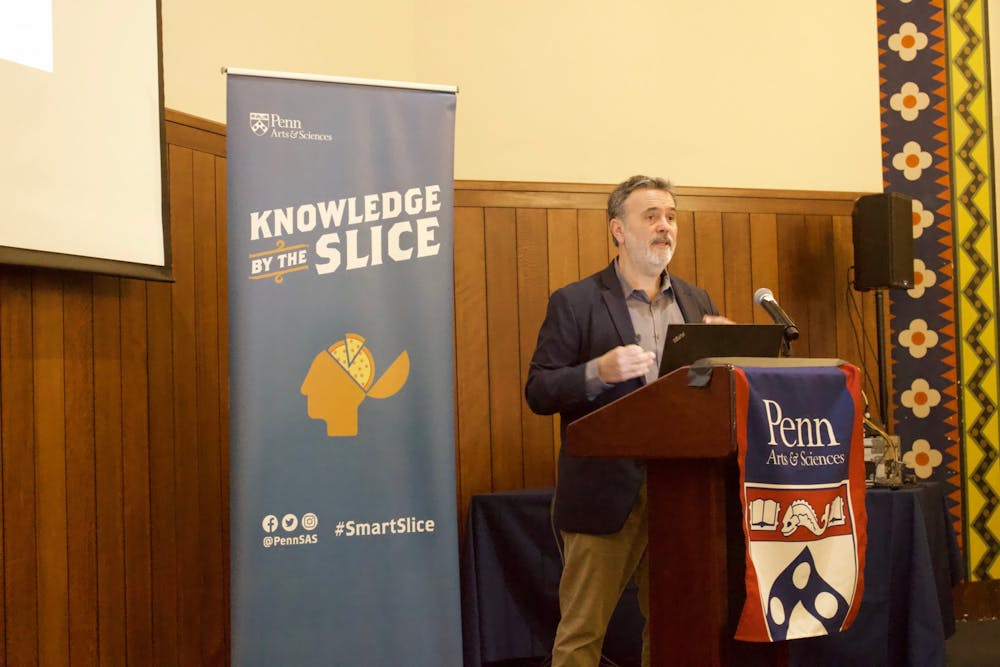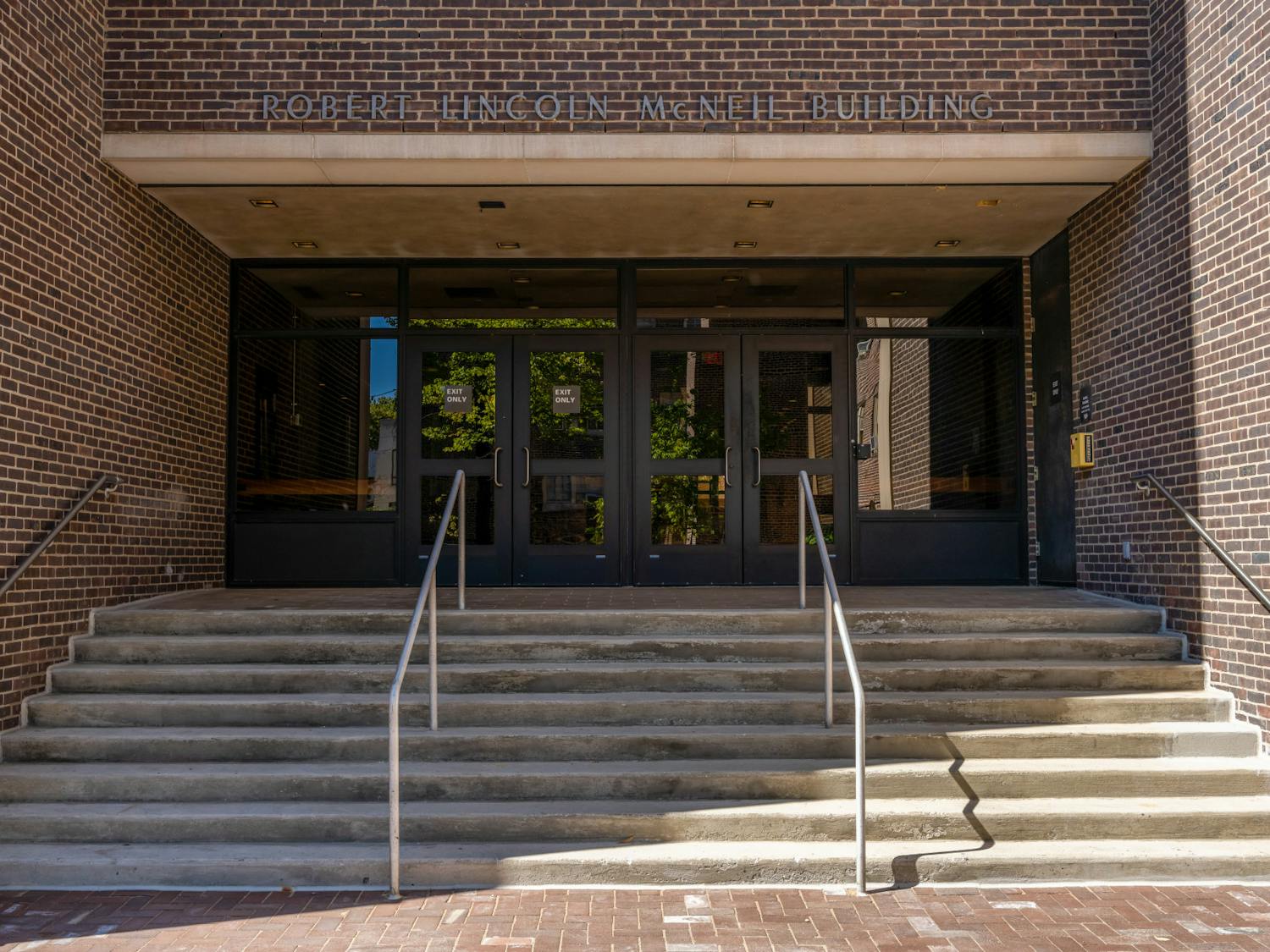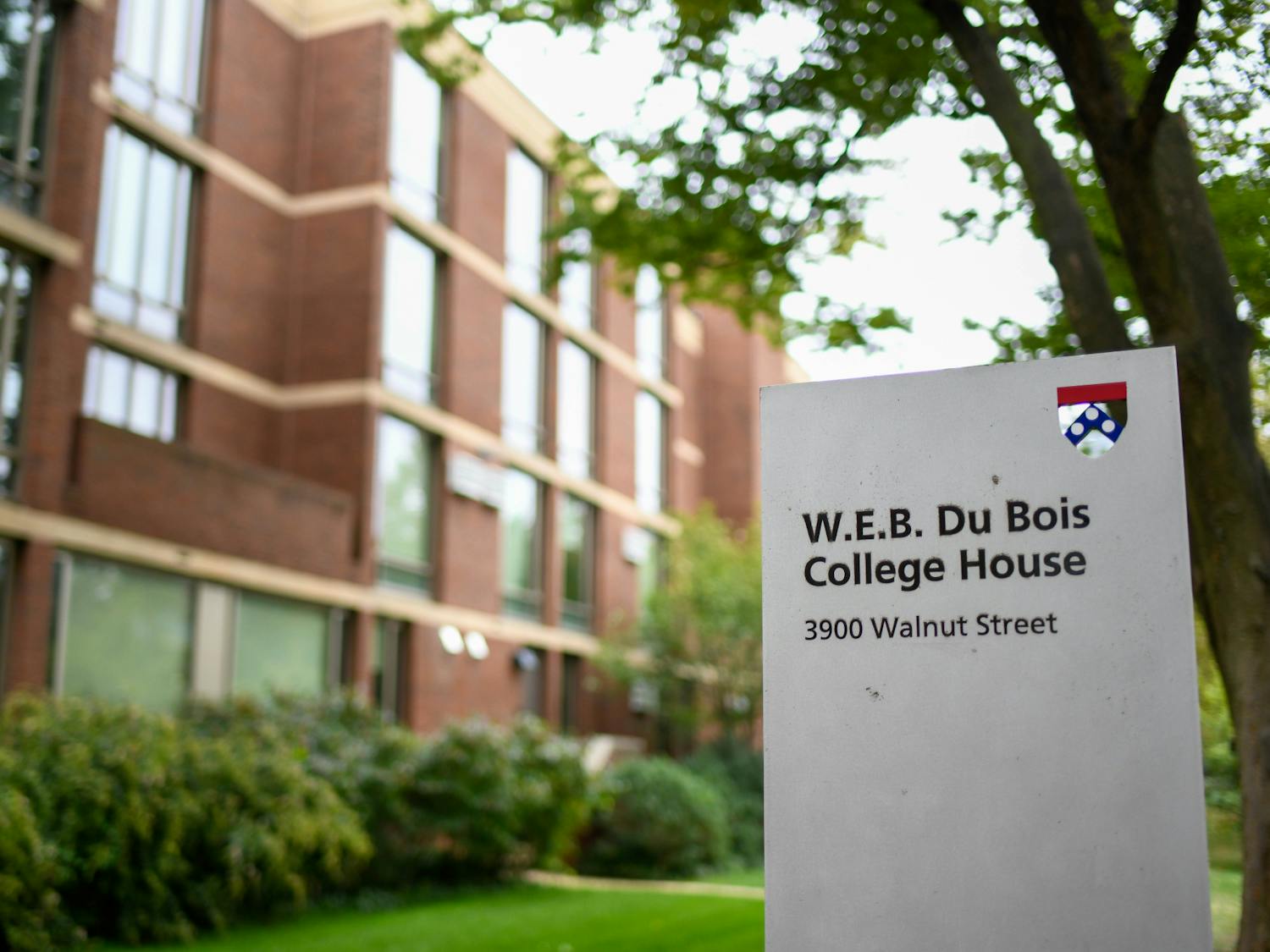Penn Political Science Chair Nicholas Sambanis gave a talk Thursday addressing biases against immigrants of different religious groups in Europe.
Sambanis, founder and faculty director of the Penn Identity and Conflict Lab, shared his research on the question of whether shared norms and ideas can reduce ethnic discrimination. During the talk, part of the School of Arts and Sciences' "Knowledge by the Slice" series, Sambanis presented studies he conducted on anti-immigrant attitudes in Germany and how these are affected by religious and cultural differences between immigrants and native-born citizens. Sambanis found that while religious and ethnic biases exist, these can be reduced when immigrants conform to local social norms.
In the opening of his lecture, Sambanis presented results from a European survey where participants were asked if they agree with the statement, “There are so many foreigners living here it doesn’t feel like home anymore.” In countries such as Italy, France, and Germany, over 40% of respondents agreed, indicating that they view immigrants as a cultural threat.

Behavioral and Decision Sciences master's student in the College of Liberal and Professional Studies Nicole Grabel, said, "The research is important in that it opens people’s ideas to the idea that discrimination is real, which should be obvious by now but people are still unaware.”
Sambanis then described experiments he conducted with Penn Identity and Conflict Lab faculty affiliates Danny Choi and Mathias Poertner to observe how race and religion affect people's assistance of strangers in public places. In the experiment, conducted 1,614 times in 31 German cities, a woman dropped fruit in a train station and the researchers studied whether bystanders came to help her. Bystanders were less likely to help a woman who appeared to be an immigrant rather than native-born, and they were less likely to help a woman wearing a hijab compared to one wearing a visible cross necklace. Sambanis said this reflects biases against immigrants and Muslims in Germany, a predominantly Christian country.
Nicole Grabel, an Behavioral and Decision Sciences master's student in the College of Liberal and Professional Studies, said she appreciated that Sambanis raised awareness of ethnic and religious biases.
"The research is important in that it opens people’s ideas to the idea that discrimination is real, which should be obvious by now but people are still unaware,” Grabel said.
Despite this, Sambanis found immigrants were able to reduce biases against them by publicly conforming to national norms, such as the German social stigma against littering. When an immigrant woman asked a litterer to pick up his trash before dropping her fruit, bystanders were more likely to help her. However, some religious and ethnic biases remained — immigrant hijab-wearing enforcers were assisted 72.9% of the time, compared to native-born enforcers at 83.9% and non-hijab wearing immigrant enforcers at 60.4%.

Sambanis concluded that adherence to social norms can partially reduce anti-immigrant bias even if differences in ethnic or religious appearance remain.
In another experiment, conducted 1,830 times across 25 German cities, the researchers found progressive family values also make immigrants more likely to receive assistance from others. In this case, before dropping fruit, immigrant women answered a phone call where they expressed their views on gender roles. Those who said women should stay home and care for children were less likely to be helped than those who said women should not sacrifice their careers for family.
Overall, Sambanis concluded that adherence to social norms can partially reduce anti-immigrant bias even if differences in ethnic or religious appearance remain.
"It is worthy of note that cultural differences cause bias, but not all cultural differences — this depends on political context," Sambanis said. “Assimilation might not be necessary to reduce bias."
When an audience member asked about policies to reduce anti-immigrant bias, Sambanis said more research is needed to understand the causes of specific biases. This left some audience members with questions about the implications of his results.
“Listening to this research, I’m left wondering, how can we help to bring the change?” 1975 College graduate Nancy Oberlander said.









